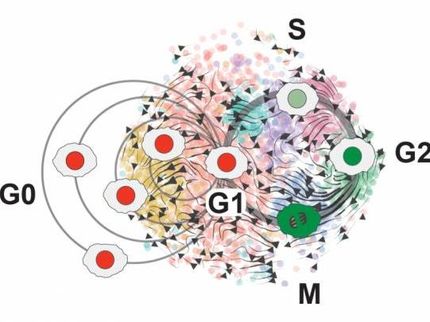Lorus Therapeutics allowed European patent to protect unique tumor suppressor
Advertisement
Toronto. Lorus Therapeutics Inc. ("Lorus") announced that its wholly owned subsidiary, GeneSense Technologies Inc., has been allowed a patent by the European Patent Office for its discovery of a gene, which suppresses the growth of malignant tumors.
The patent titled, 'Suppression of Malignancy Utilizing Ribonucleotide Reductase R1,' protects an innovative approach to inhibiting tumor growth in mammals, including humans. Using a vector delivery system, a tool of gene therapy, the tumor suppressor gene sequence is delivered to cancer cells and the resulting expression of the gene inhibits tumor growth. Preclinical studies demonstrated markedly suppressed tumor growth. The gene can also be delivered with virus vectors to tumor cells, where it was shown to be a very effective antitumor agent.
The European patent follows previous patents issued by both the United States Patent Office and the Australian Patent Office.
"The discovery of a gene that has the ability to suppress malignant growth is an important achievement for Lorus, and we are working vigorously to determine how this discovery can best be developed for the benefit of cancer patients," said Dr. Jim A. Wright, chief executive officer, Lorus. "Gene therapy is an exciting cutting-edge area of research and represents Lorus' fourth core technology platform under development."
Dr. Wright added: "The strategic diversification of our technology pipeline, which includes antisense, immunotherapy, small molecules and our tumor suppression gene, demonstrates Lorus' commitment and unique approach to developing cancer therapies. This recent European patent allowance contributes to our strong global intellectual property portfolio, an important strategy for enhancing the value of our company."
Gene therapy is a novel approach employed to reverse diseases caused by genetic damage, such as cancer, which is based on modifying the expression of genes in damaged cells by, for example, delivering new functional genes to these cells which replace the genes in damaged cells. The identification of genes that are capable of reversing disease characteristics is of fundamental importance to gene therapy strategies.
Techniques are being developed for delivering genetic material to the appropriate cells in a way that is specific, efficient and safe. Gene delivery vehicles called vectors enable disease-related genes to be delivered to cells. A vector can be a disabled virus that cannot reproduce and cause disease, but that can act as a delivery mechanism to transport the gene to the target cell. Once the gene is inside the cell and is expressed, it can function to restore the patient's health.
Other news from the department research and development
Most read news
More news from our other portals
See the theme worlds for related content
Topic world Gene therapy
Genetic diseases once considered untreatable are now at the center of innovative therapeutic approaches. Research and development of gene therapies in biotech and pharma aim to directly correct or replace defective or missing genes to combat disease at the molecular level. This revolutionary approach promises not only to treat symptoms, but to eliminate the cause of the disease itself.

Topic world Gene therapy
Genetic diseases once considered untreatable are now at the center of innovative therapeutic approaches. Research and development of gene therapies in biotech and pharma aim to directly correct or replace defective or missing genes to combat disease at the molecular level. This revolutionary approach promises not only to treat symptoms, but to eliminate the cause of the disease itself.






















































